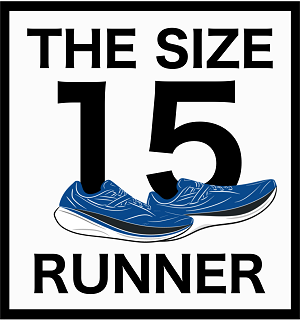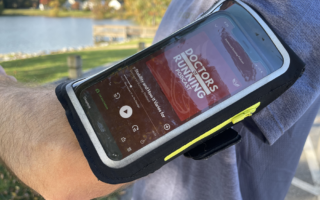They say that marathon recovery is just as important as training. Why don’t I follow a post-marathon recovery plan like I do a training plan? The last thing I want to do after a four-month training block is follow another plan!
I recently recapped my disappointing sixth marathon, the Virginia Beach Shamrock Marathon, and failed second attempt at breaking three hours. As much as I’m determined to find my next marathon and begin a new training plan, I’ve been greatly enjoying a more carefree post-marathon recovery plan: no plan.
When I’m training, I’m full of concerns: Am I running fast enough? Am I running too fast? Am I not running enough mileage? And, you guessed it—am I running too much mileage?
In my post-marathon recovery plan, running is on my own terms. I don’t have to follow any paces, mileage, or schedule. The only thing I follow during this respite is my heart. I run wherever I want, whenever I want, for however long—or, rather, short—I want. I missed these “fun runs” where pace and mileage don’t matter. It’s easy to get so caught up in training that you forget to run in the moment and actually enjoy each run for what it is: a chance to break free from life’s occasional mundanity and constant stresses, by putting one foot in front of the other.
When you follow a six-day-a-week training plan for nearly a third of the year, you run the risk of burning out. Add in a second marathon training block in the same year, and it adds up to roughly eight months a year immersed in heavy mileage. And that’s not to mention the strength training I do four times a week. It’s a lot!
Go to great lengths
Now, you’re probably saying to yourself, it’s your choice to run two marathons a year. True. I make the decision because I also love the grind of constant running, with multiple speed workouts and long runs a week. I love the great challenge of it. And I love utilizing a variety of great shoes to conquer the great amount of mileage. But that doesn’t mean it’s always a great time. Far from it.
There are many runs—too many to count—when running is the last thing I want to be doing. I’d rather go enjoy too many beers at a local Richmond, VA, brewery (there’s a lot of great ones) and not worry how it will impact my body or training. At times, I’d be happier staying up later to catch the end of an NBA game on tv, and sleeping-in later the next morning, instead of catching highlights the next day. Or taking a much-needed nap over lunchtime instead of going for a run.
The beauty of the “offseason” is that I get to do all of that and more. And it feels even more special because I know it’s rare.
Duality of running
In addition to having the post-marathon blues, after each marathon I feel like I’m in this state of limbo. One half of me is excited to take it easy and run on my own terms, and the other half is itching to get back into training so I don’t lose even an ounce of my fitness I worked so hard to build over a quarter of the year. It’s the duality of being a runner—sometimes, you simultaneously crave to go running while also looking for any reason not to go.
Ironically, when I’m rested and running easy in the offseason, I don’t feel the need to get out the door. But when I’m tired from a tough week’s training, I’m as determined as ever to hit the pavement, for fear of not keeping up with my training. Go figure.
Although, my first few runs with no post-marathon recovery plan weren’t so easy. While I’m not sore anymore, my body still feels fatigued and it’s showing with slower runs. But this spring, I’m looking forward to running more for fun and waiting to start training again.
Finding the “why”
In the meantime, my wife has picked up running again and I couldn’t be more thrilled! Similar to the old version of me, she has a love-hate relationship with the sport. She’s currently training for her own race and I’ve become her running partner. It’s exciting to see the gains she makes week after week.
Starting up running after a marathon is never easy, but it’s nowhere near as challenging as hitting the pavement again for the first time in months. I give her a lot of credit for sticking with her training. I was once a beginner, too, and I’m quite familiar with the struggle—the deep pain, the doubts, the frustrations. And the question constantly running through the mind while running: why am I doing this to myself?
It’s a question I still ask myself at times, nearly 20 years after starting running. Usually, it arises during the throes of intense marathon training, when I’m struggling to finish strong for a second long run of the week. But, each time, I remind myself of what life was like before committing to running. It was less interesting, less fulfilling, and less healthy—three adjectives that could’ve also described me in the past.
The answer to why I run has varied over time—to get in shape, for a fun hobby, to break three hours in the marathon, etc. But the one thing that remains constant is my unwavering faith that all those hours spent on the roads each week are the best use of my time. Because what better way to pass the time than by passing mile markers?








